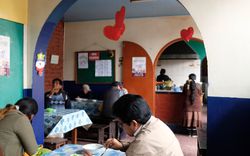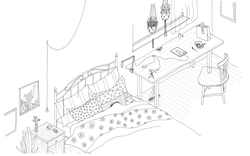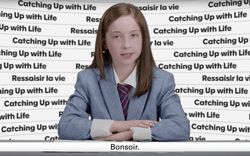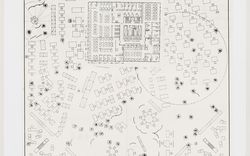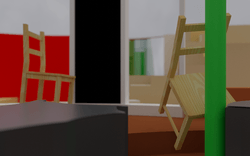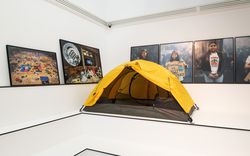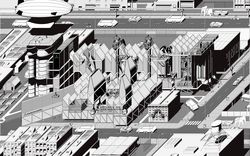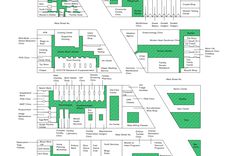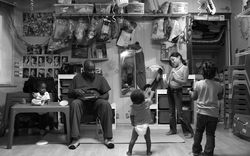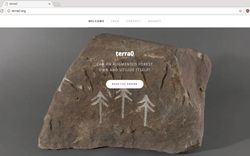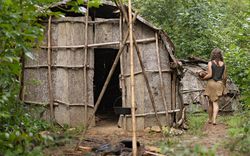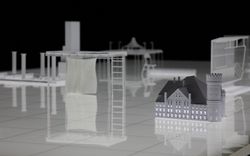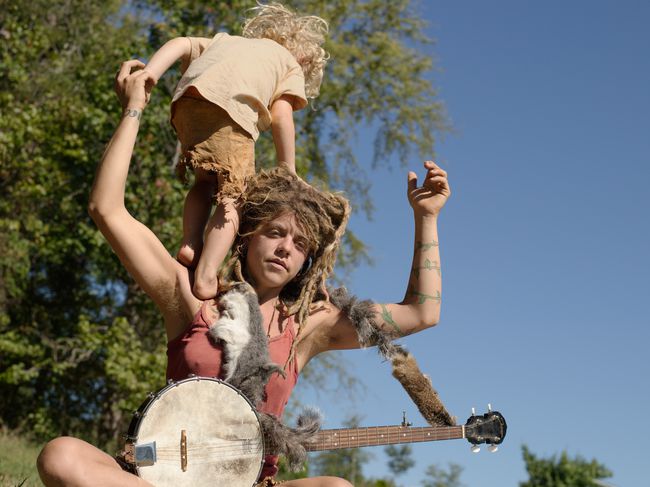A Space for a 30-Year-Old Retiree
Traumnovelle narrates a transition to solitary life. Photographs by Lucas Foglia.
As I write this, I live alone, in the woods, a few miles from a small town that I can access by foot, in a home that I built with only the power of my bare hands, and I no longer need to earn my living.
To the surprise of many, I retired at the age of thirty-two from a high-income job. Though I had been a high earner, I openly rejected the lifestyle that many of my peers had considered to be normal, and that many others considered desirable. Those who knew me best had observed my shift away from city living, favouring a more affordable suburb instead. Most knew that I preferred hiking a mountain or visiting nature over any work-related social event, where the undertones of comparison and competition were overwhelming. Most knew my aversion to the fashion, cars, and houses that others desired and boasted. The gatherings I hosted were humble, my closet was devoid of frivolity, and my pantry was sensibly purchased in bulk.
My frugal lifestyle allowed me to retire as a millionaire. I set up my bank accounts and adapted my investment plan such that they could perform optimally within the current economic climate. After I sold my house and my few superfluous possessions, I purchased the acreage on which I would construct the abode in which I would spend my retirement.
During the first summer of my retirement, I roamed my forested site, observing and learning the land. On a south-facing rocky slope surrounded by tall oaks, I discovered a small cave, which immediately appealed to my sense of the primitivity and fulfilled the rough warmth that I had been in search of. I spent the summer working the earth with simple tools and carving out new openings into the cave to bring light into its depths, with no plan in mind other than the desire to sculpt it. I was ecstatic in my determination to set up a home perfectly fitted to my needs, in which I would lead a life of joy, learning, and creation—a life that I had yearned for throughout my years of being employed. It was to be a life in which I could be in touch with nature and with myself and in complete control of my impact on the world.
Throughout the autumn, I hunted and harvested the forest’s berries and mushrooms to fill my pantry. I canned and smoked as much of the Earth’s generosity as I could and stocked up on staple dry goods from the supermarket. The discount stores found within the city sprawl had previously always left me with a feeling of ambivalence, but, they have always allowed me to save my pennies, and since I F.I.R.E.-ed, I have found an added sense of peace in their bulk opulence.
During my infrequent visits to town, I would also check on the general state of the economy. Each time I did, I found the market to be in an increasingly worrying condition, which eventually led me to install a satellite internet connection that would allow me to constantly keep in touch with the state of my finances. I set up a projector that displayed all the changes to my equity live. I would monitor the numbers on the rough curvature of the darkest corner in my dwelling during my days and through some of my nights.
The market collapsed that winter. Though I lost everything I was worth and was left penniless, I managed to maintain ownership of my land. In retrospect, I think the idleness I found in my retirement kept me too close to my worries. I was not living the life full of meaning, self-love, and exploration that I had envisioned for myself, rather I remained a slave to the money I had earned, just as I had been a slave to it while earning it. During the long and dark evenings that winter, I did not read a single book or knit a single scarf. Instead of the calm winter days of mindful fabrication that I had planned for myself, I agonized. Terrified, I considered what would happen if I were to have an accident, if I wished to eventually have a family, or if I wanted to travel, all of which my cautious planning and restraint would have previously allowed for.
As the days lengthened, I set out to prepare for the spring. As I witnessed the green shoots of seedlings push through the earth, rays of sunlight reaching the central stone I used as table, and echoing of the morning chatter of birds through my cavern, I began to find a profound sense of belonging. My worries ebbed as the land surprised me with its generosity. By summer, I had withdrawn the last of my cash, closed all my accounts, and set out to live solely off the land. I came to observe that my concerns had shifted rather than disappeared: from health of the stock market to the weather, from points and dollars to crops and seeds, from interest rates to water supply. I no longer had numbers to reliably predict and abstract my survival.
This text was written for our publication A Section of Now. It is published here as part of our Catching Up With Life project.


